New Delhi: In the past year, JNU has became more than just a university to us. It has become a fault line in Indian politics since that fateful day of February 2016. Following the February 9 incident – where for participating in an event about the execution of 2001 Parliament attack convict Afzal Guru – students were slapped with sedition charges and arrested, a lot has happened in the campus. Which is probably why the students who spearheaded the massive students’ movement do not hold February 9 as a milestone of their struggle. In their view, the campus has been under ‘continuous attacks’ away from the spectacle of TV studios and video cameras.
ScoopWhoop News meets the four faces of JNU’s student movement to reflect on what impact the February 9 incident had on the campus and their lives.
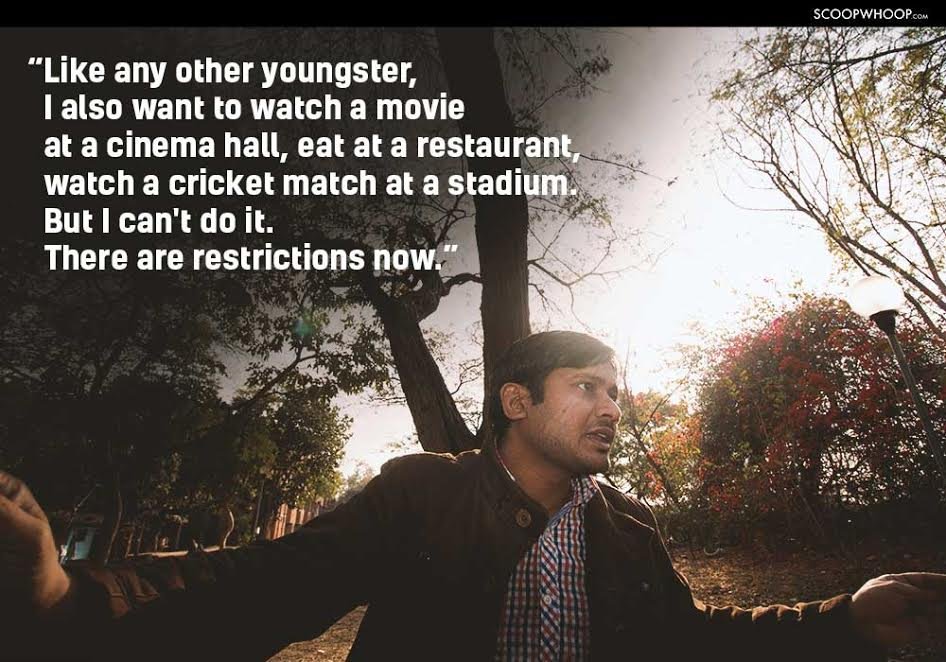
Kanhaiya Kumar
PhD final year, Centre for African studies.
How did the February 9 incident change your life?
A huge section of people still think I am an anti-national. Until the court doesn’t acquit me, their view isn’t going to change. My academic life has been hampered. I am in the final year of my PhD and field work is mandatory (Kanhaiya’s PhD is on Africa). Since I don’t have a passport, I can’t go. Isn’t the government playing with the future of a student?
The government has left me no choice. I was expecting I’ll have a job and then start taking part in the fight for social justice and oppression. But I am doing that even before I could even think of a job.
My life hasn’t been normal. Sometimes, I miss my old days. People might think of me as a celebrity but I never feel it. However, I do feel pressure of the expectations people have on me.
What has changed in JNU since February 9 incident?
There have been both pros and cons. Before the February 9 incident, not many people knew about JNU. Those who knew were only aware of the positive things of the university. Now, many people know JNU but for both positive or negative aspects.
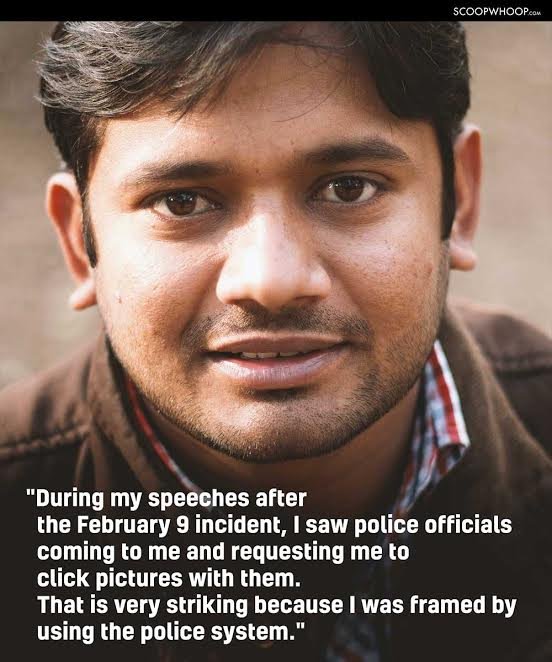
There’s been a visible impact on the culture of JNU. I think February 9 was one of the big attempts to create a fear psychology on the campus but the much bigger attempt is the disappearance of Najeeb Ahmad. This is a clear message to the people if you say anything against ABVP, you’ll be no more.
The moment that stayed with you?
The interesting moment was when local DCPs’ of three different cities – where I had gone for various events – came up to me in civilian clothes during the night. The police officials said they keep worrying about me and encourage me that there’s someone in the country who’s raising his voice.
I could feel the anger and resentment brewing inside the system.
Future plans?
I want to get a job. Mainstream politics is not my priority.
Any word for the lawyers who beat you up?
I don’t address those kind of people. If a person is sleeping he can be awakened. But if a person is pretending to sleep, how can we awaken him?
Case status: Released on permanent bail. Police yet to file chargesheet in the February 9 incident.
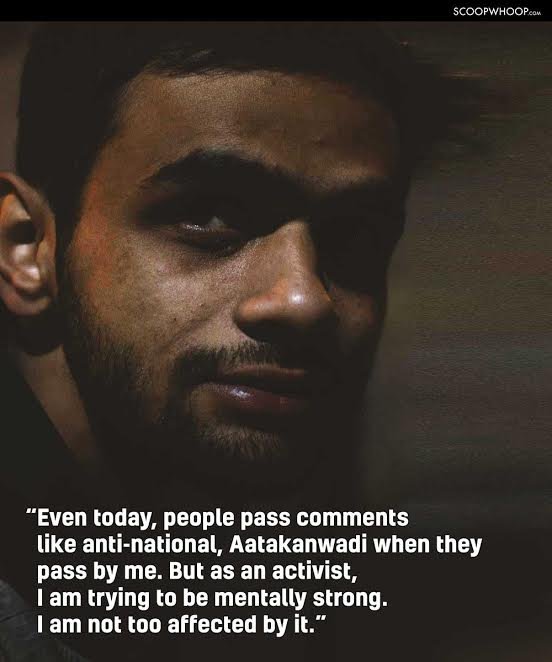
Umar Khalid
PhD 4th year, Centre for Historical Studies.
What has changed in JNU since February 9 incident?
I think the date of 27 January 2016 is significant to better understand what happened in JNU after February 9 incident. On that day, new Vice Chancellor Jagadesh Kumar joined the office with a particular ideology. Many people remember JNU with February 9 incident or Kanhaiya’s speech etc., but for those inside JNU there hasn’t been a single day without an attack on students in the university.
Since July last year, the VC’s and the government’s tactic is to internally destroy the JNU without the televised spectacle we saw in February-March. Unprecedented things are happening. It’s an extreme situation in the country. ‘ShutDownJNU’ campaign continues in many ways even today.
How did the February 9 incident change your life?
The way I was profiled on the basis of my identity was different than the rest of other accused in JNU controversy. I was only kept in jail for 25 days for allegedly raising a slogan. But we have thousands of Muslim youths who are being witch-hunted in the name of ‘war on terror’ and Islamophobia in India.
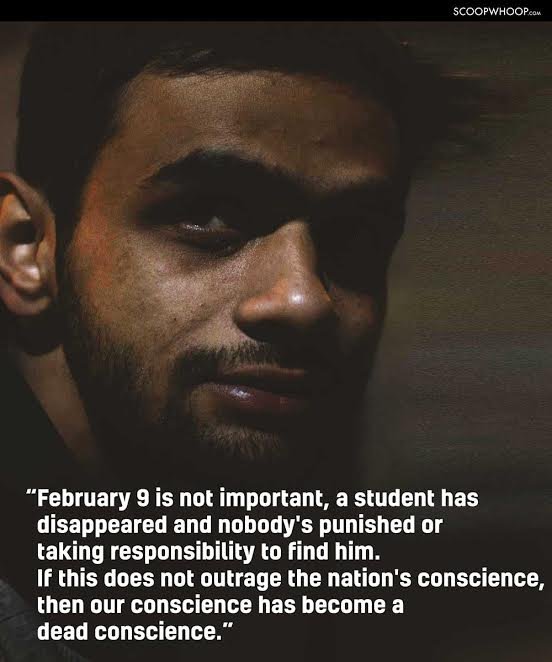
After I came out of jail, the hatred against me was quite intense. Now it has subsided to a large extent.
It was certainly a very learning and very humbling experience. To see your own witch-hunt on television and then to be in jail for absolutely doing nothing brought to us what we had read happening to others.
Most importantly February 9 incident also got us a larger audience. Now we are no longer talking to only some 40-50 students in JNU. A large number of people outside are curious about how and what we think of the issues in the society.
The moment that stayed with you?
The happiness in the eyes of people at JNU’s ‘Freedom Square’ when we returned to campus after getting bail. It felt like a fish – deprived of water until then – had come back to water.
Future plans?
No concrete plans as yet. Want to finish my PhD and carry on activism.
Case status: Out on bail. Police yet to file chargesheet in the case.
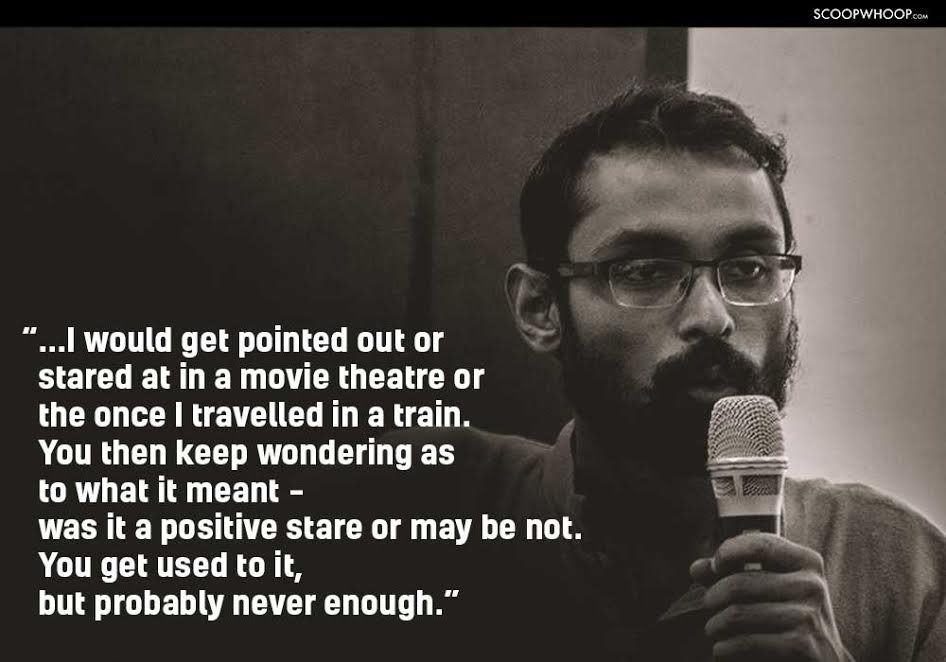
Anirban Bhattacharya
Submitted PhD in July 2016. Viva awaited. Currently working as a senior researcher in Centre for Equity Studies in Delhi.
What changed in JNU after the February 9 incident?
What didn’t change is relentless attack on JNU students . However, the method of attack changed. Last February 9th, there was a spectacle now it has been replaced by a strategy of what one may call a series of “surgical strikes”- that is aimed at hollowing out and curbing all forms of democratic norms systematically. This of course makes it far more challenging to resist.
How did the February 9 incident change your life?
One cant say that it didn’t, but the question is whether for the better or for worse. Certainly there are inconveniences now, far more for Umar than for instance for me.
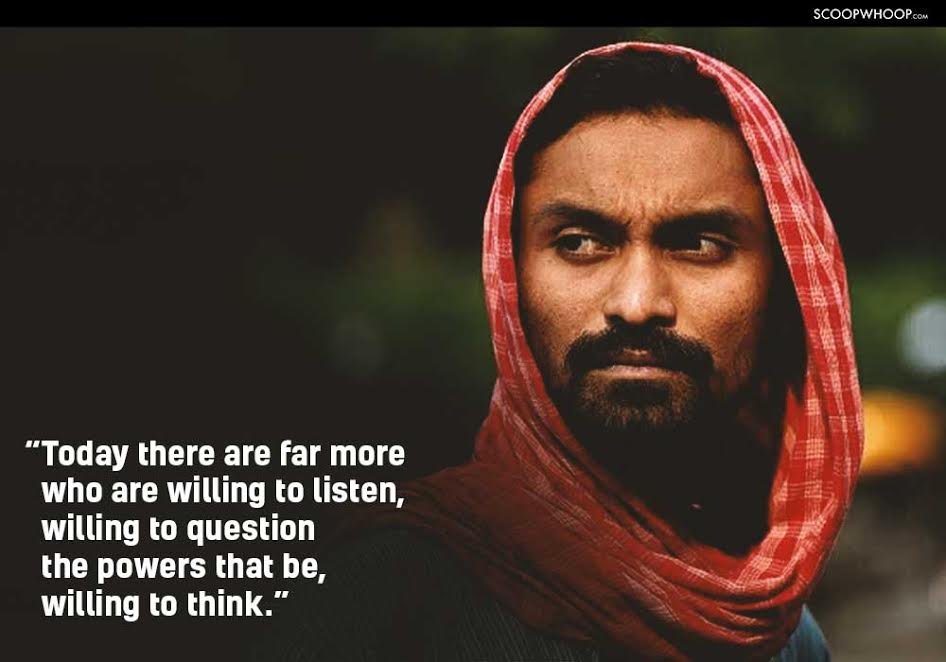
But then if one were to compare, I must admit that the positives far outweigh the negatives. Today there are far more who are willing to listen, willing to question the powers that be, willing to think.
Future plans?
I wish to be a journalist. In whichever capacity, I wish to continue raising questions regarding the myriad injustices and oppression that people continue to face.
Case status: Out on bail. Police yet to file chargesheet in the case.
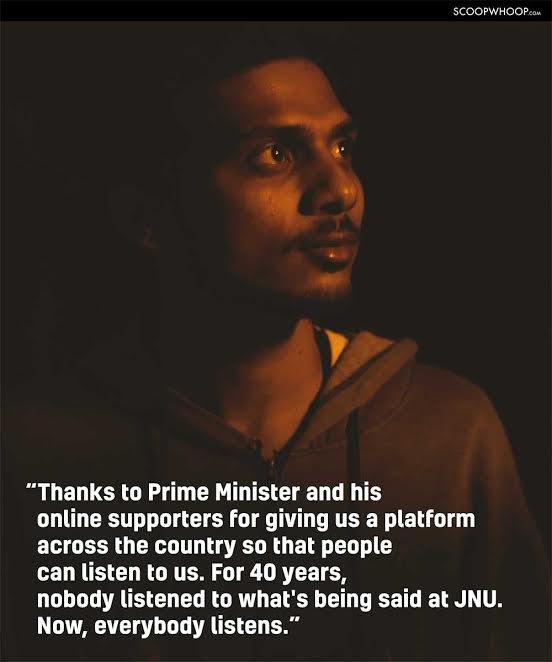
Rama Naga
Phd 1st year, Centre for Political Science
What changed in JNU after February 9 incident?
The demography and the nature of the campus has changed after the incident. Instead of going against students through arrests and other controversies, the administration, with the orders from top, is trying to bring in such regulations that will change the character of the university.
We call it a ‘show-cause raaj.’ It’s not part of JNU’s culture to ask for administration’s permission for holding a dharna or taking out a march. Now, the administration asks us for permission to even lit a fire to warm ourselves.
The administration intends to create a dossier of students and prove them as history-sheeters who are always behind trouble in the campus.
How did the February 9 incident change your life?
Since we were the office bearers of JNU students’ union, the police crackdown taught us many things about how the state operates.
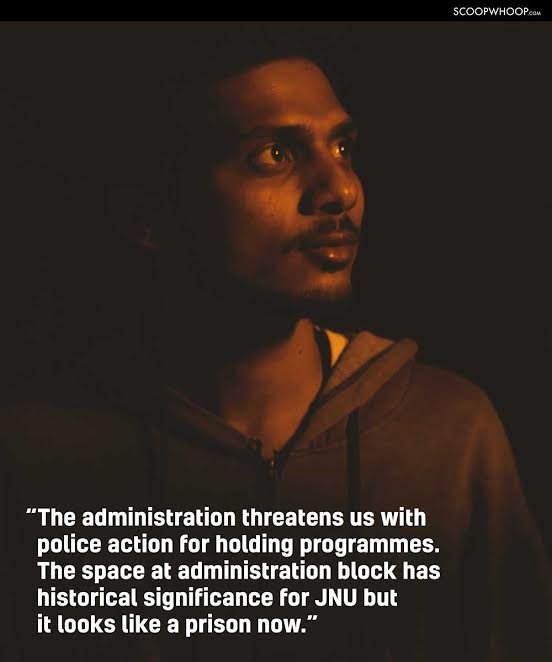
We came to know what the system is. We were wondering where should we go. Our option was court but there was threat of attacks on us even at the court.
The moment that stayed with you?
I come from a very backward village of Odisha where the literacy rate is abysmal. When I won elections of students’ union in 2015, my entire village was happy about my feat. In my village, people don’t understand politics. They believe what TV and newspapers say. When the February 9 incident happened, they had 100 per cent belief on me that I won’t do anything wrong despite media propaganda and smear campaign.
Future plans?
No one has done a PhD from my area, my focus will be to become the first. Even if I join politics, my focus will be to work for my area. So much is happening in the university that I am uncertain whether I’ll be able to complete it or not.
Case status: Police yet to file chargesheet in the case.
Pictures by Ahmed Kamal
Illustrations by Puneet Gaur and Suvojyoti Ray

















